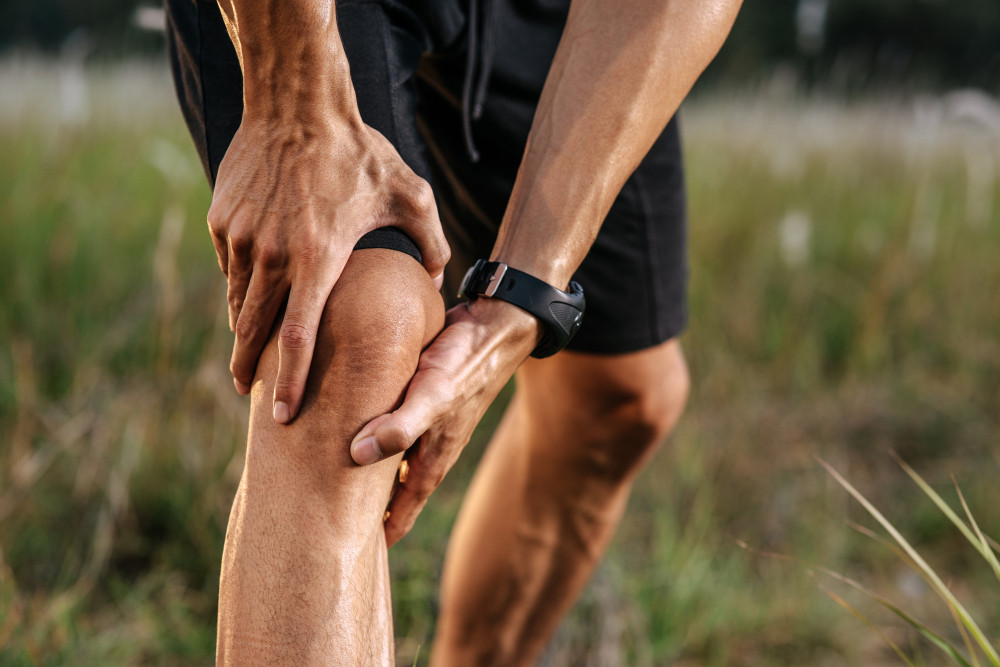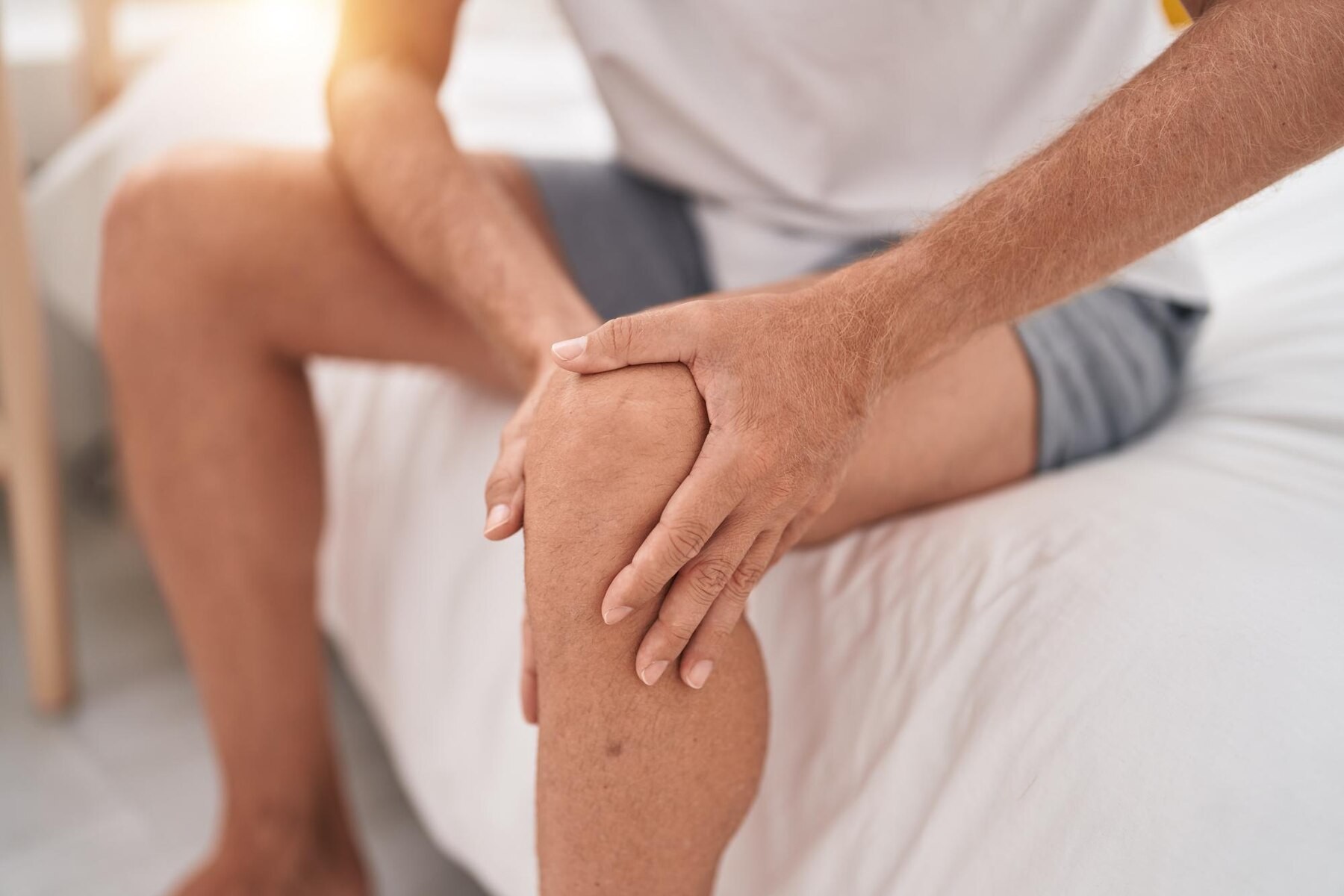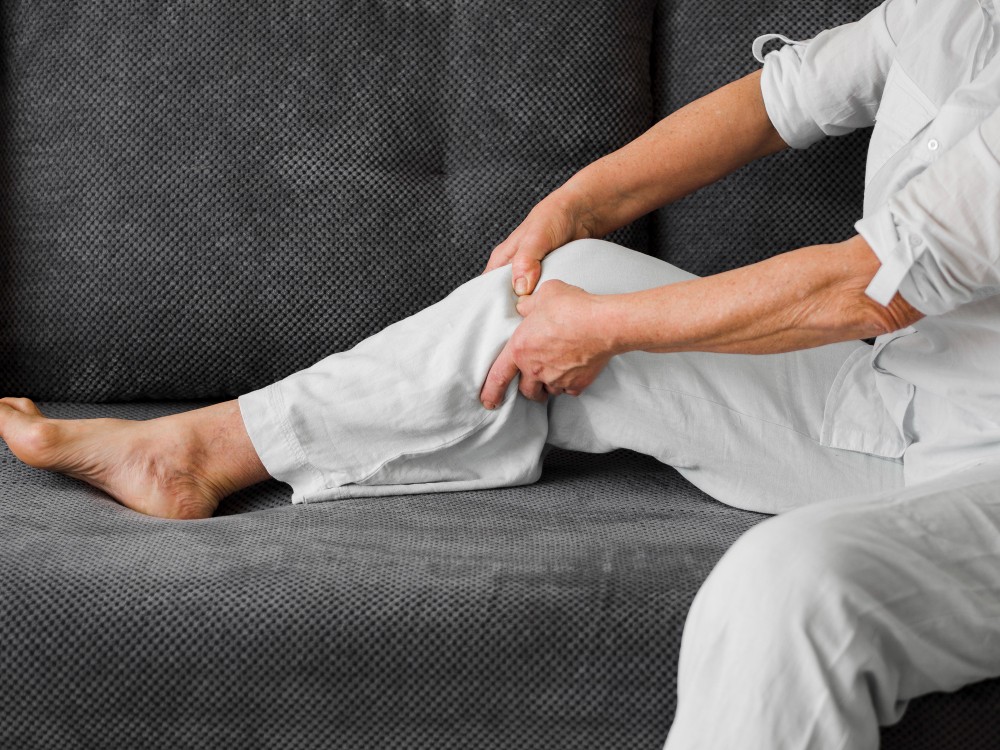Nyeri lutut adalah masalah yang banyak dialami orang dewasa usia 40 tahun ke atas, namun sebenarnya masalah lutut bisa dialami siapa saja. Sebagian besar masalah nyeri pada lutut disebabkan oleh aktivitas seperti olahraga atau cedera lainnya, namun bisa juga disebabkan oleh kondisi medis lainnya.
Mengetahui penyebab dan gejala nyeri lutut dapat membantu Anda mengatasi nyeri lutut sehingga mencegahnya berkembang semakin parah.
Penyebab Nyeri di Lutut dan Sekitarnya
Secara umum nyeri di area lutut bisa disebabkan oleh cedera, masalah mekanis, radang sendi, dan masalah lainnya. Beberapa penyebab nyeri lutut antara lain:
Patah tulang
Nyeri lutut utamanya disebabkan oleh patah tulang. Tempurung lutut bisa mengalami patah saat Anda mengalami kecelakaan atau terjatuh. Patah tulang juga dapat dialami oleh orang yang tulangnya melemah karena osteoporosis.
Cedera ACL
Cedera ACL adalah adalah robeknya ligamen anterior cruciate (ACL), yaitu salah satu dari empat ligamen yang menghubungkan tulang kering ke tulang paha. Cedera ACL biasanya dialami oleh atlet basket, sepak bola, penari, atau aktivitas lain yang mengharuskan perubahan arah secara tiba-tiba.
Meniskus robek
Meniskus adalah tulang rawan berbentuk sabit pada lutut. Meniskus berfungsi sebagai peredam kejut antara tulang kering dan tulang paha. Ketika Anda memutar lutut saat menahan beban di atasnya, bagian tulang rawan ini dapat mengalami robekan.
Bursitis
Bursitis adalah peradangan pada bursa, yaitu kantung kecil berisi cairan pada lutut yang berfungsi melindungi bagian luar sendi lutut sehingga tendon dan ligamen dapat bergerak mulus di atas sendi. Ketika terjadi peradangan di area bursa, Anda dapat mengalami nyeri sendi saat bergerak atau ketika ditekan.
Baca Juga: Penyebab Nyeri Lutut saat Berjalan
Tendinitis patela
Tendinitis patela adalah peradangan pada tendon patela, yaitu tendon yang membentang dari tempurung lutut ke tulang kering. Pada tendinitis patela, tendon mengalami peradangan dan terbentuk robekan kecil yang menyulitkan Anda berjalan, berlari, dan melompat.
Knee loose body
Knee loose body adalah kondisi dimana serpihan tulang lunak mengambang di celah antar sendi pada sendi lutut. Kondisi ini bisa menghalangi pergerakan sendi yang ketika digerakkan dapat menimbulkan sensasi seakan ada serpihan atau benda bergerak di lutut.
Osteorartritis
Osteoartritis adalah bentuk artritis yang paling banyak terjadi. Peradangan ini terjadi ketika tulang rawan pelindung yang melindungi ujung tulang terkikis seiring penggunaan dan pertambahan usia.
Rematik
Rematik adalah kondisi autoimun yang menyebabkan sel kekebalan tubuh menyerang selnya sendiri sehingga terjadi peradangan. Rematik bisa terjadi di persendian mana saja termasuk lutut.
Baca Juga: Bolehkah Olahraga Setelah Operasi Ganti Tempurung Lutut?
Penanganan Nyeri di Sekitar Lutut
Penanganan nyeri di sekitar lutut akan disesuaikan dengan penyebabnya. Beberapa penanganan yang bisa diberikan untuk mengatasi nyeri lutut mencakup pengobatan, operasi, dan terapi fisik.
Pengobatan
Dokter dapat memberikan obat-obatan untuk meredakan nyeri dan mengobati kondisi nyeri lutut seperti rematik dan asam urat.
Terapi fisik
Nyeri lutut dapat menyebabkan otot di sekitarnya menjadi lemah. Dokter dapat merekomendasikan terapi fisik atau berbagai jenis latihan penguatan berdasarkan kondisi spesifik yang dialami. Dokter juga dapat merekomendasikan perubahan gerakan saat olahraga untuk meningkatkan kelenturan dan keseimbangan.
Suntikan
Dokter dapat meresepkan suntikan kortikosteroid untuk mengurangi gejala radang sendi dan meredakan nyeri. Selain suntikan kortikosteroid, dokter juga dapat meresepkan suntikan seperti hyaluronic acid atau plasma kaya trombosit untuk meredakan peradangan.
Operasi
Pada beberapa kasus, dokter juga dapat merekomendasikan pembedahan, terutama untuk kasus yang berat seperti operasi penggantian lutut untuk mengatasi kerusakan sendi yang parah.
Nyeri lutut merupakan permasalahan yang umum dan banyak dialami masyarakat. Jika Anda memiliki gejala nyeri lutut sebaiknya periksakan ke dokter agar mendapat penanganan yang sesuai. Anda juga bisa berkonsultasi menggunakan aplikasi Ai Care yang bisa diunduh melalui App Store atau Play Store.
Mau tahu informasi seputar penyakit lainnya? Cek di sini, ya!
- dr Nadia Opmalina
John Hopkins Medicine. Knee Pain and Problems. Available from: https://www.hopkinsmedicine.org/health/conditions-and-diseases/knee-pain-and-problems
NHS. Knee Pain. Available from: https://www.nhs.uk/conditions/knee-pain/
Cleveland Clinic. Knee Pain. Available from: https://my.clevelandclinic.org/health/symptoms/21207-knee-pain
Medline Plus. Knee Pain. Available from: https://medlineplus.gov/ency/article/003187.htm
Mayo Clinic. Bursitis. Available from: https://www.mayoclinic.org/diseases-conditions/bursitis/symptoms-causes/syc-20353242#












